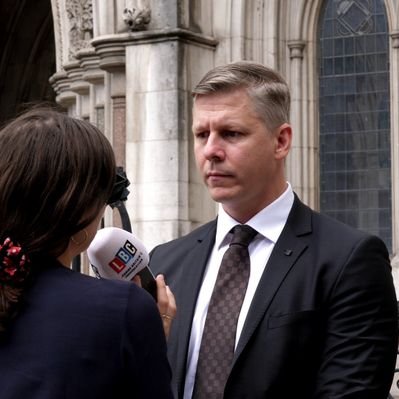By Roger Kiska
Roger Kiska is legal counsel with the Christian Legal Centre. He was a contracted legal consultant for a Member of European Parliament on legal and legislative matters and previously served as vice-president and senior counsel of Alliance Defending Freedom International. He has also served on the Advisory Panel of the European Union’s Fundamental Rights Agency.
While there are definitely some troubling elements about the new RSE regulations coming into force in September 2020, one of them is not the mandatory teaching of LGBT elements in primary schools. While campaigners and some schools may insist that such a legal requirement exists, the reality is that it does not.
No LGBT requirement for primary schools
Nick Gibb, Minister for School Standards, has said as much during the Parliamentary Question Period on 25 June 2019, that primary schools are not required to teach LGBT elements.
The Department for Education (DfE) has further reaffirmed its position elsewhere. In a letter dated 24 October 2019, the Department’s Relationships Education and Health Education Policy Team wrote:
“Although there is no requirement to teach about LGBT relationships in primary schools, primary schools are strongly encouraged to cover LGBT content.”
This response, which essentially rehashes what the Minister for School Standards told Parliament, tells us two things. First, and most importantly, that LGBT elements need not be taught at the primary level. This is great news for faith schools, for example, who want to stay true to their ethos’. Its also incredibly helpful for parents to know in advance of consultations their children’s schools are legally obliged to have with them in developing their RSE policies.
Reason for concern
Second, and more concerning, is the ultra vires push by the DfE to have schools teach LGBT elements at the primary level, even if no legal requirement exists to do so. Legally speaking, whether strongly encouraged to or not, there is absolutely no statutory obligation to do so – meaning that the DfE is exceeding its powers by implying that more of a duty actually exists than what Parliament has actually intended.
This is particularly problematic as some schools will be using this ‘strong encouragement’ to veto parental objections to their primary aged children being exposed to LGBT elements. Other schools might read ‘strong encouragement’ to be a means to receiving a more favourable Ofsted inspection rating.
Lack of safeguards
This ultimately leads us into the most fundamentally flawed aspect of the new regulations and the guidance; that schools are being left to choose their own materials with moral signaling from the DfE that the more and earlier they introduce these materials the better. Despite there being a statutory obligation that any material or themes presented to pupils be age appropriate and have regard to the religious background of pupils, there has not been a single occasion where either the DfE or Ofsted have suggested that anything currently being proposed as part of RSE has breached either criteria.
It begs the question, for example, of how the DfE could defend the teaching of My Princess Boy, a book about childhood transvestitism, to a majority Muslim background primary school as being either age appropriate or having any regard for the religious background of those families. We would undoubtedly scoff at the idea of 6-year-old predominately Muslim pupils being read a story book about how normal and even wonderful it is to eat pork. Why should a book promoting the normalisation of cross-dressing or gender ideology be any different?
Things have come to the point of such absurdity, that one local authority has even promoted the teaching of childhood masturbation to primary aged students. Rather than jumping to condemn such teaching as wholly age inappropriate, the DfE has remained silent. Precisely stated, no matter how outrageous the material currently out there being labelled as RSE might be, the DfE has either directly supported it or indirectly affirmed it (by not denouncing it). That means, in essence, that the statutory protections put in the law to protect our children from corruption are quickly becoming dead letter. They are useless in the sense that the DfE, seemingly, has deemed any and all material to be both age appropriate and to have regard to the religious background of pupils on the sole basis that schools have claimed them to be materials fit for teaching.
Equality and Human Rights Commission encourages schools to break the law
To add to how quickly the RSE row is spiraling in an anti-parent direction, David Isaac, the Chair of the tax-funded Equality and Human Rights Commission (EHRC), has gone so far as to suggest that head teachers need not consult parents when introducing LGBT elements into their children’s education. He has even criticised the existing DfE guidance for telling schools to follow what the statute actually requires, which is to have due regard to the age of pupils in relation to LGBT teaching.
I would direct Mr Isaac and the staff of the EHRC to Section 80B(3) of the Education Act 2002 and Section 2A(f) of the Education (Independent School Standards) Regulations 2014 where Parliament explicitly made the duty to consult parents a statutory obligation. Sections 80A(2)(b) of the Education Act 2002 and Section 2A(d) Education (Independent School Standards) Regulations 2014 similarly makes having regard to the age and religious background of the pupils a statutory obligation.
The EHCR’s public position that these legal duties, meant to safeguard parental rights and protect the innocence of our nation’s children, be wholly ignored is nothing short of a scandal.
It is time to take a stand
So, parents beware. This is the environment in which RSE is being launched. It is incumbent on concerned parents to know three things: (1) schools MUST consult with you before implementing their RSE policies; (2) whatever schools do decide to teach as part of RSE, it must be age appropriate and it must have due regard for the religious background of the school’s pupils; (3) there is no legal duty to introduce LGBT elements at the primary school level.
I would encourage parents to be active participants in those mandatory school consultations. Understand what RSE entails. And if your child’s school wishes to introduce LGBT elements at the primary level, make them evidence the need to do so and to prove that they are having regard to your faith and the age and vulnerability of your son or daughter. Now is the time to act while school policies around the nation are being developed. If parents fail to act now, they will be setting a precedent for what RSE will be for years to come. There is too much at stake to remain silent.
This article was published on the Values Foundation website

